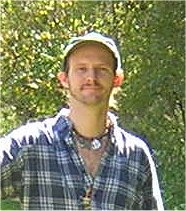During the Cold War, there was a sense of paranoia created by a world now living in the uncertainty of the nuclear age. The space age was opening up and two superpowers were constantly at odds, trying to decide the politics of an entire planet. The natural reaction to this was simple: the public became paranoid.
First, the Roswell Incident made people suspicious and fearful about alien creatures. Then in the 1950’s and 60’s the science fiction and horror movies made their fears seem more concrete. In fact, during the height of the Cold War the science fiction media was obsessed with bug-eyed monsters who were bent on the destruction of the world.
As calmer times emerged in the 1970’s the public’s paranoia began to turn to conspiracy theories: often involving the government. Such beliefs as the hiding of secret technologies from Roswell, conspiracies involving the Bavarian Illuminati, and so forth, ran amok. And today, many of these conspiracy theorists abound: especially in our modern world filled with the uncertainty of terrorism we’ve been introduced to in the past decade.
As with any conspiracies, I always have to ask those who believe such things: “To what end?” If our government is lying about Roswell, or the 9/11 attacks, then why? If a small group of scientist-minded individuals has been countering the Catholic Church in secret for millennia with a bent on destroying the world: then to what end? And what will they do next?
It seems paranoia is a quick attempt to lay the blame at another’s feet when things don’t go the way we want them to, or when we’re fearful about the future. Over the years, I’ve known many in my own life who have had the same reaction on a more personal level. I’ve known a man who believes the government (or a secret organization) is secretly sabotaging his life and his employment prospects. I’ve also known a woman who believes many people who used to be a part of her life are constantly plotting against her. In each case I have to ask again: to what end? Do people such as this honestly believe that the government, or former friends and family members have so much free time on their hands as to constantly be turning their attentions to causing the misfortunes of another? Is there some form of coherent evil at work here that would drive a group to get some sort of sick pleasure out of causing such pain?
In each of the cases above, and in other similar cases, I have been close enough to the individual in question to make a few discrete observations. It seems that these people simply make bad choices in their lives. And when things take a sour turn, they look for a scapegoat to blame these bad decisions on. They may believe the world is plotting against them. Or perhaps they are cursed!
In any case, the most successful curse is one placed upon oneself. And the countercurse is just as simple: if things in your life are not turning out the way you want them to, look at the patterns in your life. Look at the choices you are making. Are you doing the same things over and over expecting better results? Are there ways to break out of those “bad” patterns and make better decisions. Are you hanging out with the wrong people, or dating the wrong kinds of people? Are you turning down jobs that aren’t good enough, waiting for the perfect one to fall into your lap rather than taking what’s available until something better comes along? Are you letting other people tell you what you should be doing in your life rather than making decisions on your own?
The only way out of a mess of our own making, is an escape path of our own doing.




